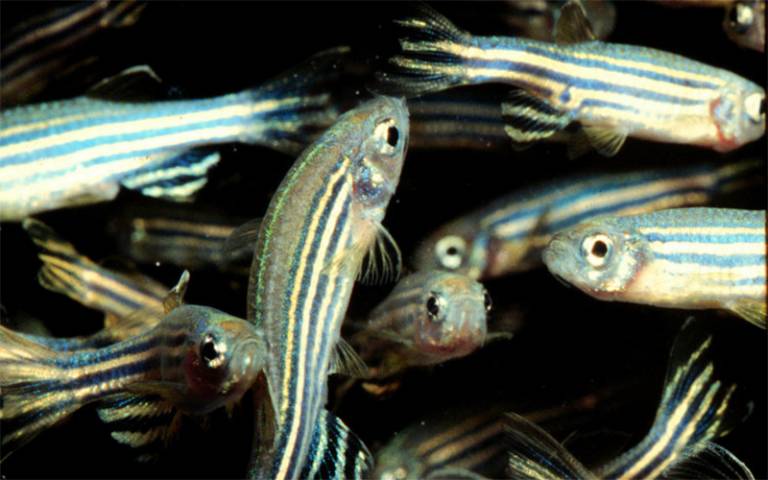UCL releases animal research statistics alongside fellow top institutions
19 July 2019
UCL is releasing its animal research statistics today in collaboration with Understanding Animal Research - an organisation that explains why animals are used in medical and scientific research.

UCL and nine other institutions together conducted nearly half of all UK animal research in 2018.
The statistics pertain to animal procedures used in medical, veterinary and scientific research, and are freely available on UCL's animal research website as part of joint commitments to transparency and openness.
These ten organisations carried out 1.69 million procedures, 47% of the 3.6 million procedures carried out in Great Britain in 2018. More than 99% of these 1.69 million procedures were carried out on rodents or fish.
Animal research at UCL contributes to developing treatments for a wide range of conditions, such as heart disease, glaucoma, Alzheimer's disease, chronic pain, epilepsy, Huntington's disease and multiple types of cancer.
Recently, a research team led by Professor Simon Waddington (UCL Institute for Women's Health) found that a fatal neurodegenerative condition known as Gaucher disease can be prevented in mice following fetal gene therapy. His research team also works on ways to reduce the number of animals needed for medical research. One such method involves injecting mice with firefly genes that facilitate imaging of disease progression, reducing the number of mice needed and improving the reliability of results.
This is the fourth year in a row organisations have come together to publicise their collective numbers and examples of their research.
| Organisation | Number of procedures |
| Medical Research Council | 268,032 |
| Francis Crick Institute | 250,940 |
| University of Oxford | 219,551 |
| University of Edinburgh | 194,174 |
| UCL | 182,438 |
| University of Cambridge | 141,968 |
| University of Glasgow | 128,982 |
| King's College London | 121,163 |
| University of Manchester | 94,913 |
| Imperial College London | 85,772 |
| Total | 1,687,933 |
All organisations are committed to the '3Rs' of replacement, reduction and refinement. This means avoiding or replacing the use of animals where possible; minimising the number of animals used per experiment and optimising the experience of the animals to improve animal welfare. However, as institutions expand and conduct more research, the total number of animals used can rise even if fewer animals are used per study.
All ten organisations are signatories to the Concordat on Openness on Animal Research in the UK, a commitment to be more open about the use of animals in scientific, medical and veterinary research in the UK. More than 120 organisations have signed the concordat including UK universities, medical research charities, research funders, learned societies and commercial research organisations.
Professor David Lomas, UCL Vice-Provost (Health), said: “Animal research continues to play a small but vital role in research at UCL, enabling our scientists to tackle some of the world’s most pressing challenges and improve human health. At UCL, we are committed to maintaining the highest standards as a world-leading biomedical research university, and to find ways to refine, reduce and replace our animal research whenever possible.”
Wendy Jarrett, Chief Executive of Understanding Animal Research, which developed the Concordat on Openness, said: "The Concordat has fostered a culture of openness at research institutions up and down the country. Institutions now provide an unprecedented level of information about how and why they conduct medical, veterinary and scientific research using animals. Almost two-thirds of the university Concordat signatories provide their animal numbers openly on their websites - accounting for almost 90% of all animal research at UK universities."
Links
- UCL Animal Research website
- Detailed facts & figures of animal research at UCL
- Gene therapy for Gaucher disease: news story
- Animal research case studies
- Concordat on Openness on Animal Research in the UK
- Annual Statistics of Scientific Procedures on Living Animals Great Britain 2018
Source
Image
- Zebrafish at UCL
Media contact
Chris Lane
tel: +44 20 7679 9222
 Close
Close

